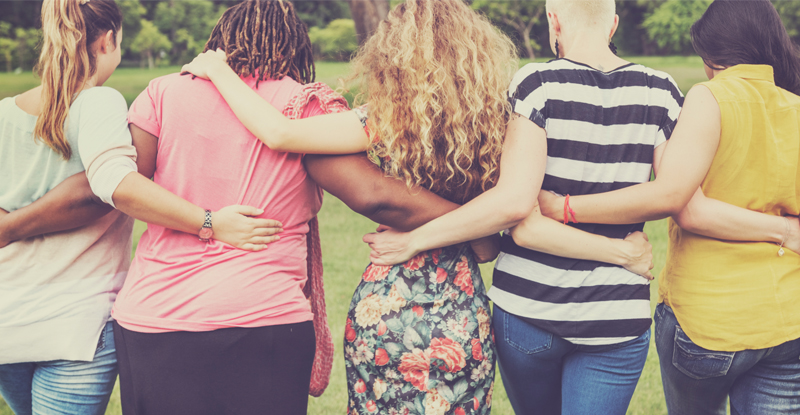Stop the shame: A self-love approach to your health

Last month, I wrote an article asking people to think about their “why” for weight loss. It basically encouraged the idea of love-based weight loss versus shame-based weight loss.
This month I want to go a bit deeper into the idea of shame-based messages for managing health—what they look like and how we can start to manage health through self-love and acceptance.
What is shame and what does a shame-based message look like?
Shame is a master social emotion rooted in the fear that we are inadequate, defective, and/or that we don’t live up to the expectations of others. A shame-based message is one we receive from ourselves or others that gives us the perception that we don’t measure up to where we should be.
Perception is the key word, because it doesn’t matter what another person meant—it only matters how we receive the message and how it affects us. A person might have good intentions. The goal may be to encourage healthy changes like losing weight or getting more exercise. We may have good intentions when sending shame-based messages, too. We may use them with others, or with ourselves.
Reality is often more complicated than intentions. If the receiver of the message is struggling and knows what they need to do but has barriers— physical or psychological—that are stopping them from doing it, a message perceived as shame-based can make them feel like they are not good enough as they are, leading them into a shame spiral.
But if we don’t tell people to be healthier and point out their risk factors, won’t that lead to complacency?
Not necessarily. If we send messages that we don’t accept the other person as they are, this can actually lead to alienating the person instead of helping them.
In the instance of obesity, for example, most people who are obese are aware that they are. They also are aware that obesity is a risk-factor for many chronic diseases; this is well-publicized information. However, this emphasis on knowledge about obesity’s risks does not seem to be helping; the prevalence of obesity continues to increase over time despite all the media campaigns encouraging people to change.
Many obese and overweight people want to lose weight. They know it’s unhealthy. However, if wanting to lose weight were all it took for people to be at a healthy weight, we would have very few overweight and obese people.
In addition, sending messages that make people feel shame can lead to numbing behaviors to make them feel better. This can drive them straight to the behavior they want to decrease, like emotional eating. Those behaviors can make people feel better in the moment but are likely to backfire later on.
OK, OK, you have convinced me—but how can I be supportive to others and myself instead of shaming?
Glad you asked! Here is a list of ways we can try to support those making a change (including ourselves):
- Focus on strengths and progress – Instead of pointing out what someone isn’t doing, focus on what they are doing that’s going well. If you exercised today and you don’t usually do that, pat yourself on the back.
- Don’t let the perfect be the enemy of the good – So you had a cupcake (sounds delicious!). Don’t let a slip-up dictate the way your whole day goes. Better yet, don’t even see it as a slip-up. Allow yourself to live your life. We are humans, not weight-loss machines.
- Practice mindfulness and gratitude – Everyone is perfect just as they are. We can’t change anything immediately, so it’s important to see and accept yourself or others as they are. Take a few deep breaths, practice yoga, chew and taste your food, notice how your body moves. As things change, you may feel better, but taking stock of what you have and appreciating the present is so important.
- Surround yourself with encouragement and good vibes – As I said previously, shame is social. So surrounding yourself with others that are loving and accepting is so important, as well as controlling what messages you take in and what websites you browse (I am looking at you, social media!).
- Get to know and disarm your inner bully – You know the story…bullies are sad and lost. If you are bullying yourself or others, recognize that it may come from a place of self-protection and hurt. Try to figure out how you can meet your own needs while also being kind to yourself.
References
www.bhevolution.org/public/overcoming_shame_based_thinking.page
www.psychologytoday.com/us/blog/modern-sex/201707/how-overcome-body-shame
www.niddk.nih.gov/health-information/health-statistics/overweight-obesity



